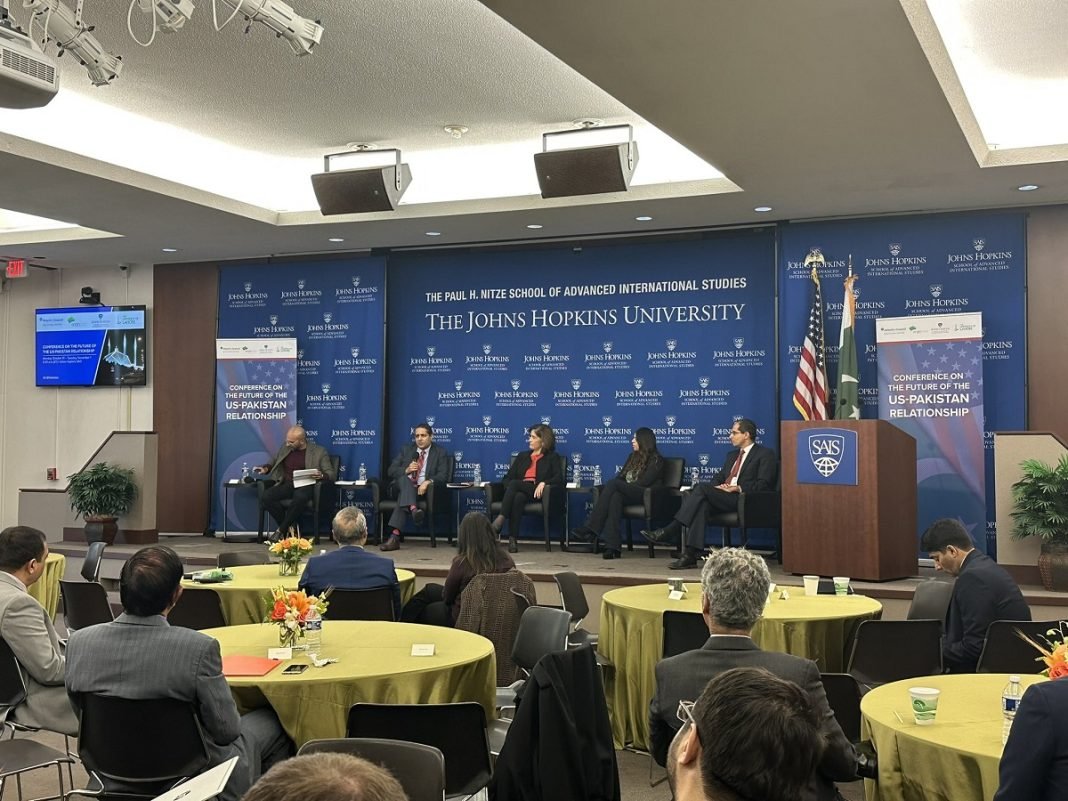Washington DC, 1 November 2022 (TDI): The Atlantic Council’s South Asia Center hosted a conference on the future of the US-Pakistan relationship.
The two-day conference was held in partnership with Engro Corporation, the University of Lahore, and Johns Hopkins University School of Advanced International Studies.
This conference included participants that were policy experts, influencers, and academics from both US and Pakistan. The purpose of the conference was to discuss ways to boost bilateral relations between both states.
The way to boost bilateral ties is to focus on new areas for economic collaboration and cooperation. The change in Pakistan’s political economy is creating avenues for engagement with the world.
Pakistan’s Ambassador to the US, Masood Khan, and Dilawar Syed, Special Representative for Commercial and Business Affairs US Department of State were also present at the conference.
Remarks by Ambassador Masood Khan
Pakistan’s Ambassador to the US began his remarks by congratulating the Atlantic Council, the University of Lahore, and Johns Hopkins University for hosting the conference.
He further added that it is a good model to hold the conference on US-Pakistan relations by one think tank and two reputed universities.
Also read: US Envoy calls on Foreign Minister of Pakistan
While commenting on the bilateral ties between both states he said, “We are strengthening our bonds. The high-level visits & communications have given an impetus to our endeavors, to revitalize, energize & rejuvenate our broad-based relationships”.
Moreover, he added, “It would be a practical, pragmatic and relatively realistic environment without miss-match of expectations and disappointments”.
He highlighted the parameters for cooperation between both states in the future. The parameters are clear as they are based on “stabilizing Afghanistan, counter-terrorism and faster regional security”.
These are the shared objectives as remarked by the Ambassador. The role of Pakistan in talks between Kabul and Washington remains important. He concluded by focusing on the potential that can boost bilateral relations by creating positive pathways.






